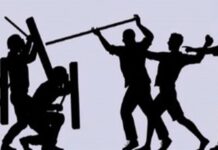The Seven-judge Appellate Division on Tuesday released split views, three against the president retaining the power to control subordinate courts, three in support and another judge gave no opinion.
On July 3, in a short order the Appellate Division had unanimously upheld the High Court verdict striking down of the 16th Amendment.
The 16th Amendment had restored the President’s power to remove Supreme Court judges.
The split views regarding the president’s power to control the lower courts, show that Chief Justice SK Sinha, Justice Nazmun Ara Sultana and Justice Mirza Hussain Haider opposed vesting the control of the lower courts in the President by Article 116 of the Constitution.
Justice MA Wahhab Miah refrained from giving his views on the matter while Justice Syed Mahmud Hossain and Hasan Foez Siddique supported vesting the power of control of lowr court judges in the President but Justice Muhammad Imman Ali remained silent about the matter.
In the unanimous verdict, the apex court the Supreme Judicial Council led by the Chief Justice.
The verdict also framed 39-point Code of Conduct for the Supreme Court judges.
Upholding the HC verdict that had struck down 16th Amendment, the Appellate Division verdict said, ‘There cannot be any doubt about adverse impact if Parliament removal mechanism is introduced.
‘Moreso, the day-to-day overlooking the administration of justice by the Chief Justice will also be hampered in the absence of Supreme Judicial Council mechanism and in that case nobody can give guarantee that the incident like the one of justice Karnan would not happen in our Court also.’
In February, Indian Supreme Court Chief Justice JS Khehar initiated contempt proceedings against sitting Calcutta High Court’s Justice CS Karnan, who in retaliation later issued warrant to arrest the Chief Justice of the Supreme Court of India.
The Appellate Division’s unanimous verdict says, ‘If the Judges are not accountable in any manner to the head of the institution, the administration of justice is bound to collapse. Therefore, there is no doubt to hold the view that this amendment
is ultra vires the constitution and the High Court Division has rightly interfered with the amendment.’
About Article 70 of the Constitution regarding floor crossing, the verdict says, ‘We are of the view that in presence of Article 70, it is difficult for a Member of Parliament to form an opinion independently ignoring the directions given by the party high command of the political party in power.’
The verdict says, ‘That being the position, it cannot be said to be exaggerated that the members of the political party which gains majority in Parliament cannot remain independent when the question of removal of a Judge would arise because the removal proceedings will be taken in Parliament by the political party in power and under such scenario, it will be questionable as to what extent Members of Parliament would act impartially, free from partisan political pressure at the time of exercising the power of removal.’
In his observations about Article 116 which vested the power control of lower courts on the President, , the Chief Justice, who penned the unanimous verdict, said practically consultations with the Supreme Court become meaningless, if the executive does not cooperate with the Supreme Court.
He said, that the amended Article 116 ‘is in direct conflict with Article 109, which provides that the High Court Division shall have superintendence and control over all courts and tribunals subordinate to it.’
‘If the High Court Division has superintendence and control over the lower judiciary, how it shall control the officers performing judicial works if the Executive controls the posting, promotion and discipline, disciplinary action is not clear to me,’ the Chief Justice said.
Source: New Age









